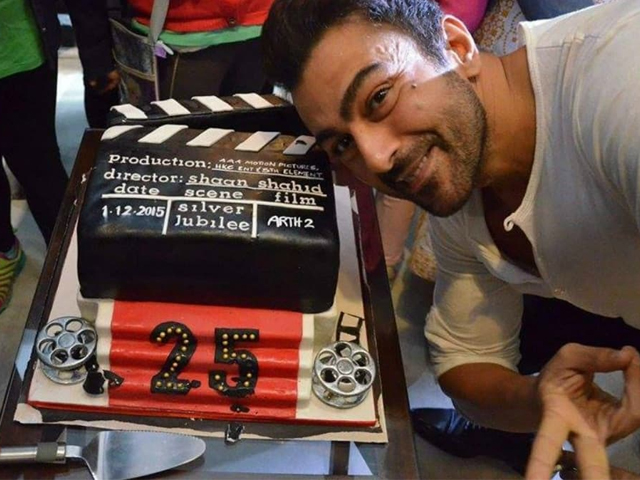
When not being able to afford dowry can lead you to kill yourself
Their father couldn't afford a dowry so they chose the easy way out; drowning in a canal to get rid of all issues.
What would you say to five women, who are all fairly above the ‘marriageable age’ and yet have no good prospects in sight? Yes, I know that phrase pretty well.
‘Haye bechari!’
(Oh, the poor thing!)
But it’s alright. Four of these five women don’t have to worry about marriage anymore.
That is not because they have found feminism. It’s not because they found someone to take care of them or to love them or hold on to them without the greed of a dowry or a fancy wedding. It’s not because their father has won a lottery and suddenly became the richest man in town. It’s not even because they found jobs and now they’re going to make something of themselves, instead of waiting at the doorsteps for their knights to show up.
It’s because they found a canal.
They found flowing water - a current that would take them away from the fact that they had no philosophical tenet of men and women being equal, to protect them from the disapproving gazes of society. They had no right to stand and fend for themselves or say that they didn’t need a man or in-laws to validate their existence in the shackles of an overwhelmingly patriarchal set up that we call ‘civilised society’.
Their father had won no lottery to help them gain riches that could attract capable suitors in the name of dowry. They had nothing but the flow of a steady current that would take them away from all the worries of an irreversible nature.
The drowning had its perks though. They would not have to be told that they were past the merry age of marriage (currently in the society that we live, it is somewhere between 18 and 28). They would not be compared to all the women who were married and had children by now. They would not be whispered about. Gazes would not fix on their faces about why or what is stopping them from getting married.
In a small town in Punjab, barely a few days ago, five sisters attempted suicide. All five of them jumped into a canal in Mailsi. Four perished and one survived. Saima* is one of those sisters. Saima is a person, a woman with hopes. She had dreams and her mother had dreams too – dreams of perhaps having sons. However, she got stuck with more daughters.
Saima herself didn’t know about her mother’s wishes while she was growing up but she was made to realise it. From the way she was forced to wear clothing, to the way she was going to live her life, from education to attitudes, from work to family, everything was dictated by the fact that she was a woman and that she had to get married one day.
People often like to quote how baby girls were buried the moment they were born before the advent of Islam in the world and how Islam changed all of that and turned the society into a better place for women. Someone aptly replied to that saying,
“Men would bury women under sand then. Today they bury women under their egos.”
Today marriage has become more of an industry, a transaction of sorts, rather than the concept of two people coming together to form a union because they would like to spend their lives together and build a family. Today, marriages are everything but the idea of providing sanity and comfort to two people who want to start families. The Pakistani society is especially obsessed with the idea of grand weddings, big dowries, great pomp and show. In a culture like that, modest weddings, plain dresses and basic necessities are considered cheaply degrading.
Whether it’s not getting married due to the lack of dowry or the burning of brides because the dowries were not enough, the need for feminism and an equal rights movement has become more than necessary.
Pakistani women are resilient. You’d be surprised at how strong they can be. But sometimes we forget that there are women who buckle. There are many women who can’t take it anymore. They are the screaming statistics – the statistics that speak volumes about the way the social strata is formed in Pakistan.
They speak volumes about the status quo: that a woman is not a human. She is an object. To be traded. To be bargained for, only when her economic worth is decided. To be used, for her body and for entertainment. To be objectified, whether it is by telling her it’s not her place to ‘speak out’ against sexual harassment or by telling her that if she dares to marry someone of her choice, she will be considered one of ‘loose morals’.
If she sits at home, she’s a burden. Her humanity is of lesser worth than the gold she is measured with. The spark in her eyes, the spring in her step, the colour of her hair – is immaterial to the television, the fridge, the DVD player, the clothes or the furniture she brings into a house. The thoughts she has or the way she speaks is irrelevant to the financial benefits she brings to the table. Her hopes, her dreams, her beating heart, her soft yet shining face is no match for the crisp RS100 and RS1,000 notes that the in-laws will be cashing at the bank.
Maybe the best place for a Pakistani woman really is the bottom of that canal.
*Names have been changed to protect the identities of the victims.




COMMENTS (12)
Comments are moderated and generally will be posted if they are on-topic and not abusive.
For more information, please see our Comments FAQ